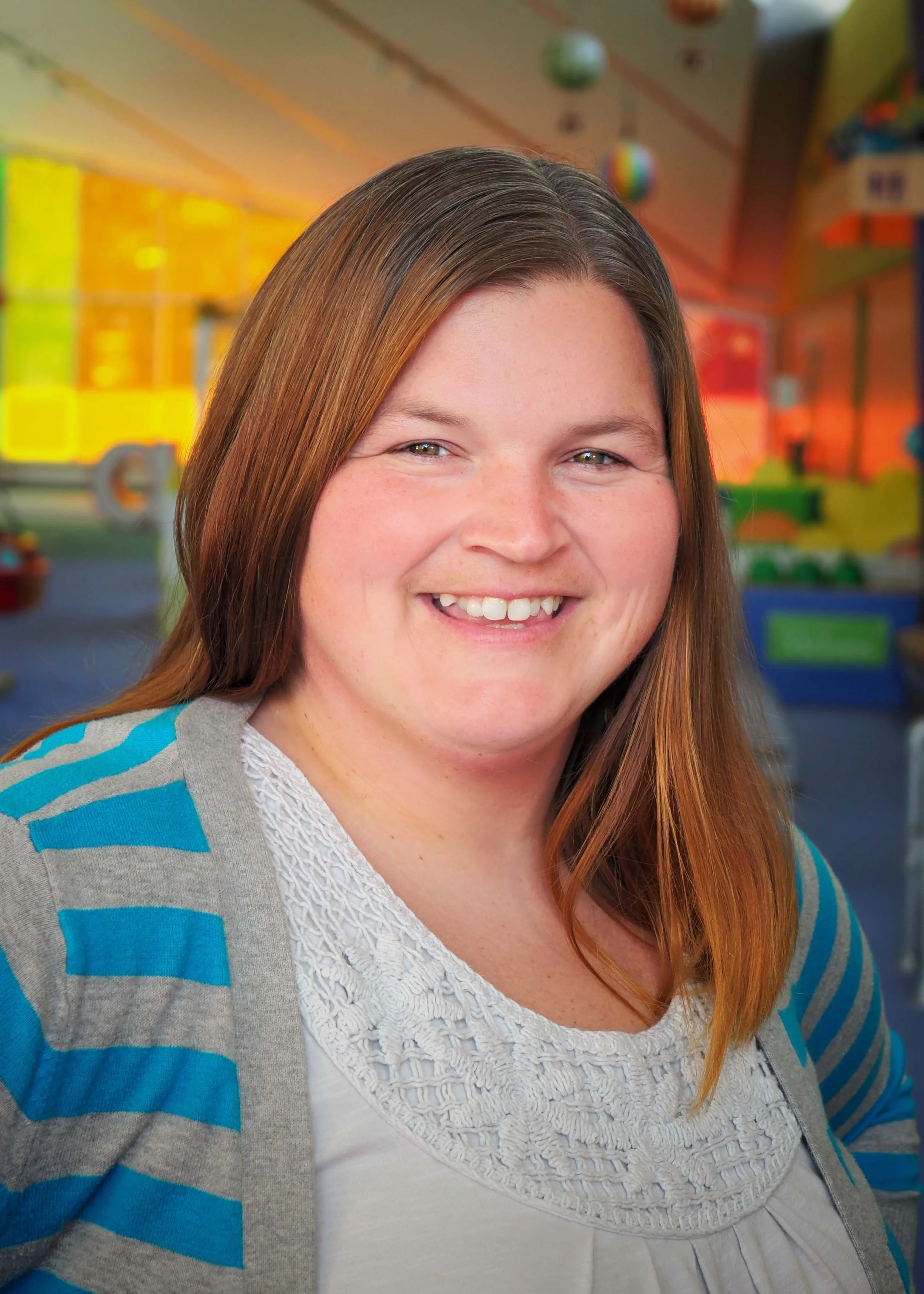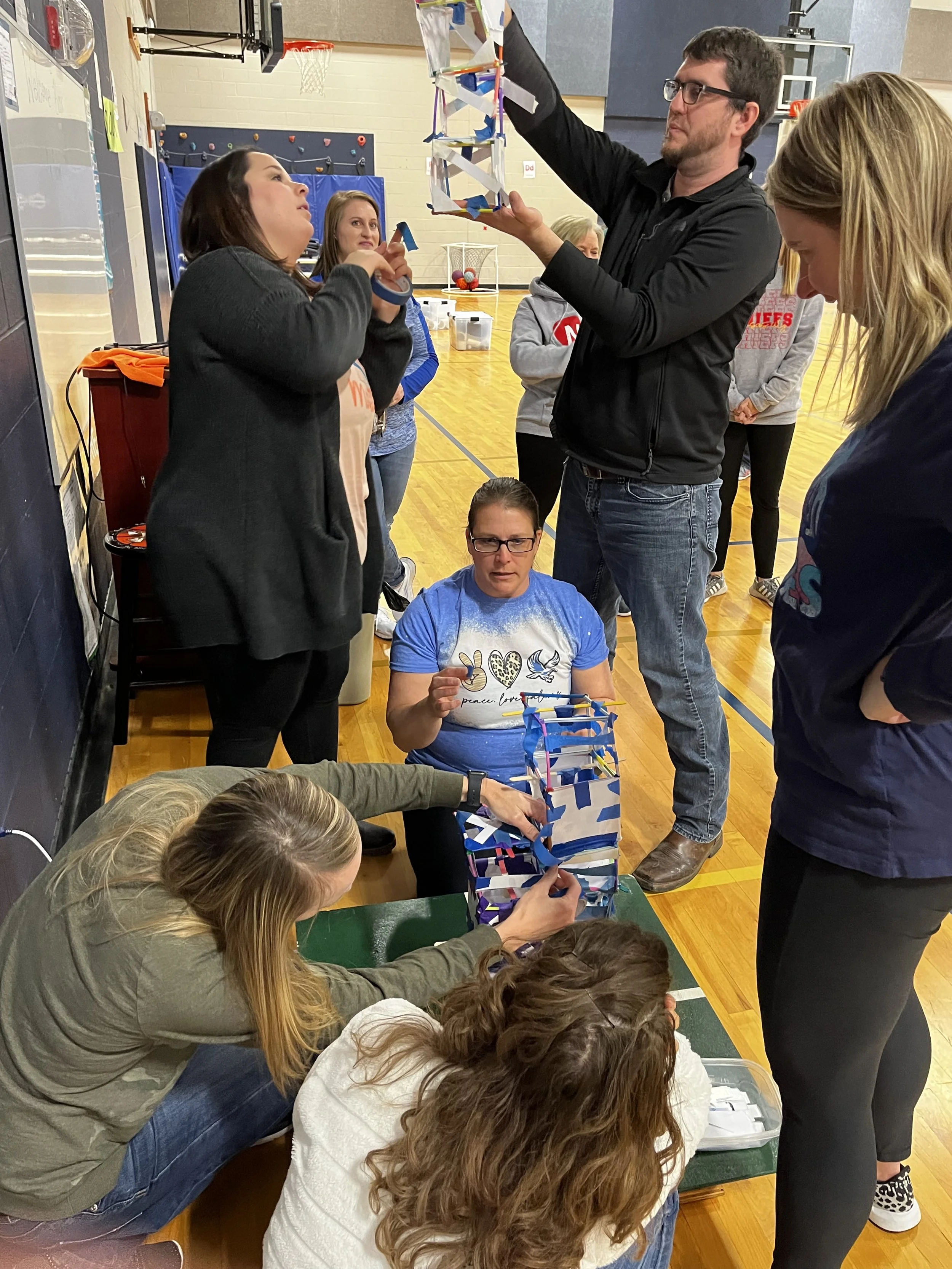Team Building Through Play
Understanding employee strengths can improve engagement and productivity in the workplace, but sometimes the best way to spur innovation and creativity is to stop taking everything so seriously.
Remember what it was like when you were a kid, and you could do or be anything you imagined?
Kansas Children’s Discovery Center (KCDC) helps wake that imagination back up through its corporate playdays. When challenged with finding new forms of community outreach for KCDC, Laura Burton, director of marketing & development, didn’t have to look very far. As she watched adults interact with their children while they played at KCDC, she noticed that the adults were also enjoying playtime.
“Play is really important for all ages,” Laura said. “It is therapeutic, helps build trust and empathy, but most importantly, builds problem solving skills. Play is the primary way children learn about the world. That doesn’t stop just because they become adults.”
Laura enlisted the help of Caitlin Luttjohann, vice president of play and learning, to design a play-based team building experience for adults, or as Caitlin calls them, “former children.” With an industrial engineering degree and an affinity for teaching kids to solve problems with science, Caitlin embraced the challenge. A play day with KCDC is generally a three-hour session consisting of an introductory discussion on the various aspects of play and why active participation is important, followed by a series of coordinated activities that allow people to work individually and in teams to reintroduce elements of play into their adult brains.
Activities include things such as acting out anything Caitlin describes, for instance a fire-breathing dragon with one leg who wants to play tag. This gets people up and moving—one of the most essential elements of play. Other activities include building roller coasters, constructing things from recycled materials, or creating some type of art.
FACILITATION IS KEY
While this sounds like something anyone could makeup, it takes an incredibly skilled facilitator who is trained to work with both kids and adults and get them to engage.
“Adults get self-conscious and let worries about what others will think of them hold them back from really going all in with their imaginations,” Caitlin said. “These sessions are designed to break down those barriers and let people tap into that part of their brains they have neglected.”
In fact, Caitlin admits that she intentionally sets people up to fail because only through failure do we really experience growth. Caitlin views play as an opportunity for people of all ages to experiment and fail in a safe environment.
“If you are stuck in your adult brain, how are you going to solve the problems of tomorrow?” she said.
Groups can schedule corporate play days at KCDC or have Caitlin come to their locations. Optimal group sizes are 20 to 30, but that is generally determined by the size of the space being used.
“I try to incorporate our surroundings into the activities,” Caitlin said. “If we are doing ramps and there are tables and chairs in the room, I will make them build ramps that go over chairs and under tables.”
THROW OUT THE RULES
Caitlin says she finds it interesting how something as simple as asking adults to play can be so complicated.
“Most of the time when I introduce an activity, the adults will ask what the rules are,” Caitlin said. “But ‘play’ by definition, doesn’t really have rules. This can be the hardest concept for them to accept.”
Caitlin said she uses the same activities for adults that she incorporates into her kids’ programs. The kids often have an easier time completing the tasks than the adults because they stop thinking about what they can’t do and just imagine what they might do.
“During one corporate play day, I asked a group of engineers to construct a rollercoaster using ramps. When I looked at what they had built, I told them I had a group of 6th graders who built a rollercoaster with five loops,” Caitlin said. “They looked at me like I was crazy and then got to work. When I came back 30 minutes later, they still couldn’t do it. Through structured learning and formal training, they had been taught to think too narrowly about the “rules” of construction. The 6th graders were not burdened with those limitations.”
RETRAIN SOCIAL SKILLS
People talk about the social skills lost by children during the pandemic, but in all honesty, adults lost social skills as well. Virtual offices, working from home, meeting with coworkers over Zoom helped companies manage through COVID, but in doing so created a culture of isolation. Now that people are back in the office, they can’t put themselves on mute or turnoff their cameras. They have to learn to once again engage and interact, just like children learn to do on the playground.
Laura says booking a corporate play day with KCDC comes with an additional perk—every dollar spent goes right back into supporting its facilities and children’s programs.







